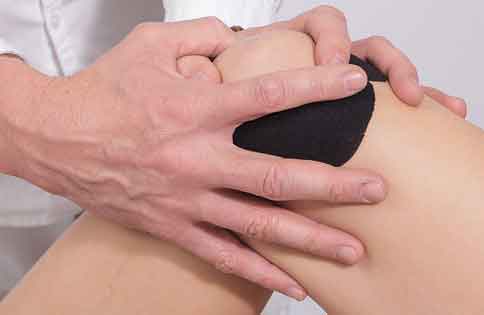A frequent issue that affects people of all ages is knee discomfort. Knee pain may be caused by an injury, arthritis, or ordinary wear and tear, and it can seriously lower your quality of life. But even in your senior years, you can keep your knees pain-free and healthy by using the appropriate techniques. This is how to maintain youthful-looking knees.
Understanding Knee Anatomy and Function
Understanding the structure of your knees will help you take better care of them. The complicated joint that forms the knee is where the tibia (shinbone) and femur (thigh bone) connect. It is made up of several parts, such as muscles, ligaments, tendons, and cartilage, which all work together to support and provide movement of the body.
Key Strategies for Maintaining Knee Health
- Stay Active: Engaging in regular exercise is crucial for maintaining the health of your knees. The muscles surrounding the knee are kept flexible and strong by exercise. Walking, swimming, and cycling are great low-impact exercises since they maintain the knees strong and minimize strain on them..
- Strengthen Supporting Muscles: Strong muscles give the knees more stability and support. Exercises targeting the quadriceps, hamstrings, and calf muscles should be your main focus. Include leg lifts and resistance training in your regimen.
- Maintain a Healthy Weight: Your knees will be under more strain if you are overweight. You may lessen the strain on your knee joints and avoid wear and tear by keeping a healthy weight.
- Practice Good Posture and Alignment: For knee health, proper body mechanics are essential. Be mindful of your posture while you sit, stand, and walk. To prevent knee discomfort when carrying large goods, utilize your legs instead of your back.
- Wear Appropriate Footwear: Knee stress can be decreased and leg alignment maintained with the aid of supportive shoes. Steer clear of high heels and wear shoes with stability and comfort.
- Avoid Overuse and High-Impact Activities: While maintaining an active lifestyle is crucial, it’s also critical to steer clear of overuse and high-impact activities that may harm the knees. If you run, think about switching it up with lower-impact workouts, and pay attention to your body at all times.
- Stay Flexible: Frequent stretching helps increase the knee’s surrounding ligaments’ and muscles’ flexibility. Include hamstring, quadriceps, and calves stretching exercises in your regular regimen.
- Hydrate and Eat a Balanced Diet: Drinking enough water keeps the joints lubricated. Consuming a diet high in anti-inflammatory foods, like fruits, vegetables, fish, and nuts, can assist to keep joints healthy and prevent inflammation. Fish oil contains omega-3 fatty acids, which are especially advantageous.
- Protect Your Knees During Activities: If you play sports or garden or do other activities that strain your knees, think about getting braces or knee pads for additional support. To get your muscles and joints ready for exercise, always warm up before and cool down after.
- Seek Medical Advice for Pain: Never disregard knee pain. See a healthcare provider if your discomfort doesn’t go away. Minor concerns can be treated and diagnosed early to avoid developing more significant ones.
Innovative Treatments for Knee Pain
For those already experiencing knee pain, there are various treatments available:
- Physical Therapy: Personalized fitness regimens can increase flexibility and strength.
- Medications: Medications that reduce inflammation and pain can help control symptoms.
- Injections: Injections of hyaluronic acid or corticosteroids may help.
- Surgery: Surgical treatments such as knee replacement or arthroscopy may be required in extreme situations.
The Role of Mental Health
Physical maintenance alone won’t keep your knees healthy. Mental health is also important. Anxiety and sadness brought on by chronic pain might worsen one’s experience of pain. Stress reduction, mindfulness, and meditation are a few techniques that can improve general wellbeing and assist in the treatment of chronic pain.
Conclusion
Taking proactive measures to take care of your knees can keep you moving comfortably for the rest of your life. Your knees are essential for your freedom and movement. You may preserve ageless knees and keep them pain-free by adopting these techniques into your regular practice. Maintaining a healthy weight, getting regular exercise, eating well, and getting professional help when necessary are all important for long-term knee health.
